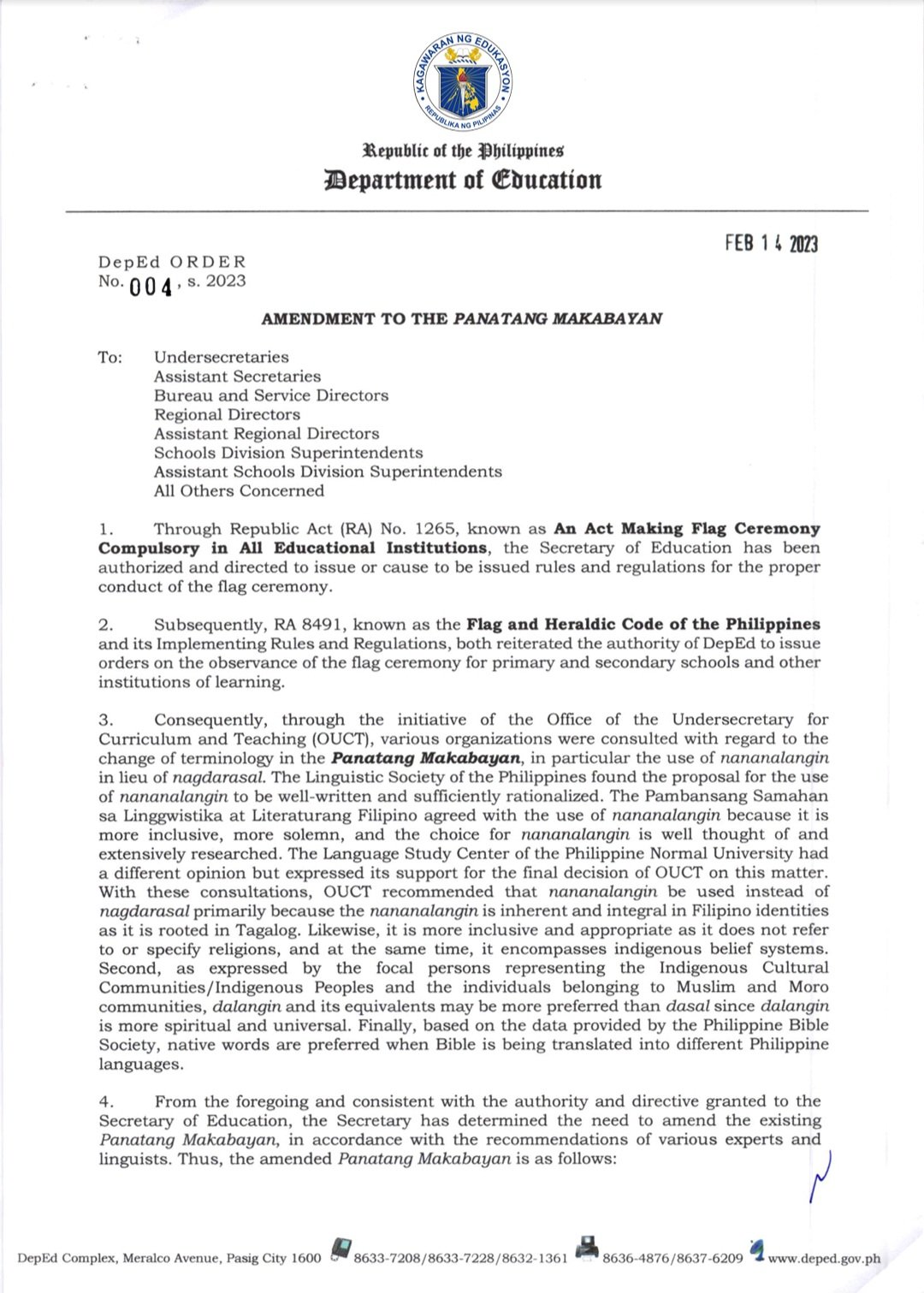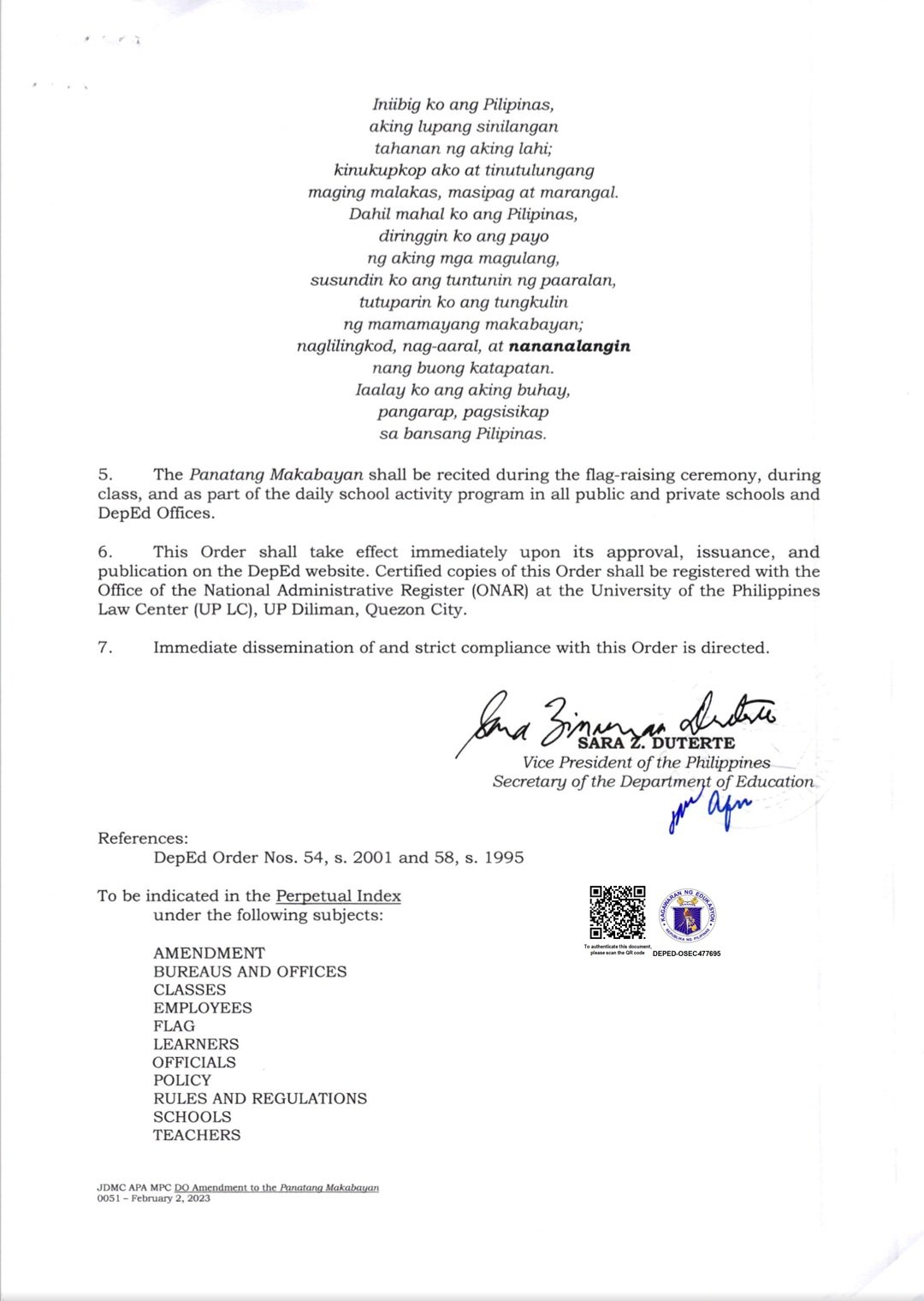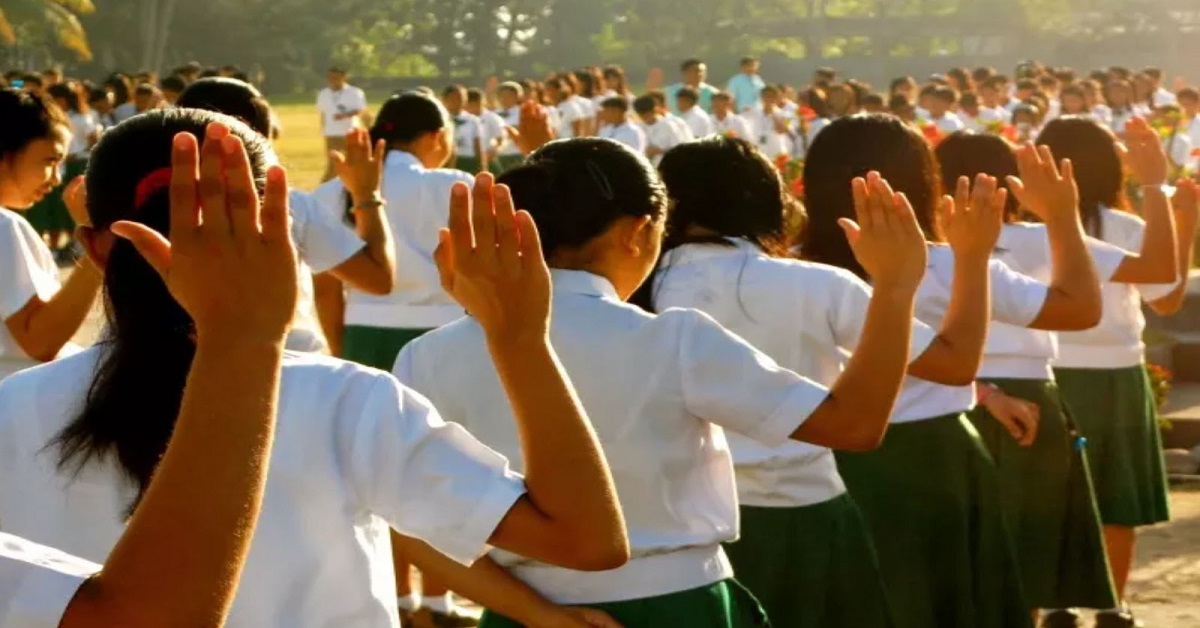The Department of Education (DepEd) has made an amendment to the national pledge, “Panatang Makabayan,” following the recommendation of experts and linguists. DepEd issued Department Order No. 4 on Tuesday, replacing the word “nagdarasal” with “nananalangin.”
Experts and linguists suggested that “nananalangin” was a better choice for the national pledge since it was “well-written, sufficiently rationalized, more inclusive, more solemn, well thought of and extensively researched.”
However, focal persons representing indigenous cultural communities and indigenous peoples, as well as individuals belonging to the Muslim and Moro communities, said that “dalangin” might be more preferred since it is “more spiritual and universal.”
The consultation process resulted in the recommendation by the Office of the Undersecretary for Curriculum and Teaching (OUCT) that “nananalangin” be used in place of “nagdarasal” primarily because it is inherent and integral in Filipino identities, being rooted in Tagalog.
Additionally, they say that it is more inclusive and appropriate since it does not refer to or specify religions, while also encompassing indigenous belief systems.
“Panatang Makabayan” is a pledge recited during flag-raising ceremonies and classes, and is part of the daily school activity program in all public and private schools and DepEd Offices. DepEd Order No. 4 cited Republic Act No. 1265, which grants the Secretary of Education the authority to issue rules and regulations for the proper conduct of the flag ceremony.
Furthermore, RA 8491 authorizes DepEd to issue orders on the observance of the flag ceremony for primary and secondary schools and other institutions of learning.


The move was received positively by some stakeholders, including linguists and indigenous peoples’ groups. Dr. Ma. Lourdes S. Bautista, a linguist from the University of the Philippines, praised the DepEd’s decision, saying that “we should be proud of our own language and use it in a way that is inclusive and respectful.”
Meanwhile, Aldeem Yanez, the spokesperson of the group SANDUGO, an alliance of national minorities in the Philippines, lauded the decision to consider the perspectives of indigenous communities, saying that it was a “step towards acknowledging their role in the country’s history.”
However, the amendment to the national pledge was also met with criticism from some individuals who felt that it was unnecessary and a waste of time and resources.
Some netizens took to social media to express their discontent with the DepEd’s decision.
POV: Ang daming problema sa educational system ng Pilipinas pero as DepEd Secretary, ang inayos mo ay ang Panatang Makabayan.
— Jaja❤️✨ (@Jaenzo_) February 15, 2023




